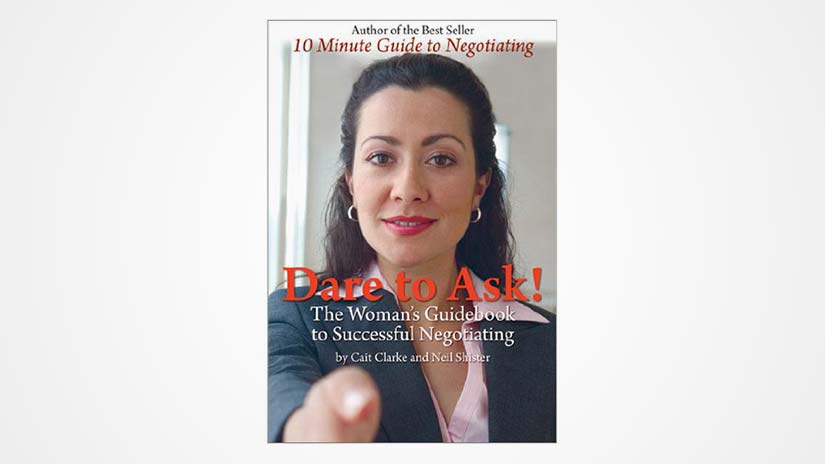
Contrary to popular belief, 9 out of 10 times you will benefit greatly by making the first offer.

By Thomas Wood
As many issues typically arise during execution of an agreement as arise during contract negotiations. Some require contract modifications, while others require a change in performance expectations. I worked with a manufacturing client recently on its dispute with a valued customer. The challenge was how to resolve the compliance issues without damaging the relationship.
My manufacturing client (Sandra) couldn’t get an important customer (Joe) to pay his bill. Joe insisted that a special order of a low volume, high cost part was delivered a week late. This caused Joe to miss his delivery deadline with his big customer. Joe is being slapped with a penalty fee from his customer and wants a 50% discount.
After probing Sandra, I learn that a delivery deadline was not in the contract. There was a verbal commitment to get the part there as soon as possible, but no promised date. Sandra wants to keep Joe happy, but since she didn’t violate the contract, she won’t discount the price.
Before asking an irate customer to be reasonable, Sandra should invite him to problem-solve a win-win solution. A particularly effective way is to listen, draw him out, respond and summarize. For example:
It is challenging to actively listen when you feel attacked, so practice before you make the call.
Be careful not to make counter-accusations. It is counter-productive. "It is not my fault; you ordered the product last minute and we delivered as soon as we could, which is what we told you when you placed the order."
Suggest that you do some research together on what went wrong, what the current obligations and understandings are, and whether they need to be revised. For example, Sandra might say: "I would be happy to consider compensation once we agree on the facts. Would you be willing to take out the contract, see what we agreed to and then decide what needs to be done? Let’s also review the order and communication process that occurred for this part and see if they need to be changed."
Once you have agreed on the facts and process improvements, choose an offer.
CHOICE ONE: Create good will with a concession other than a price discount. Sandra might say, "Given the facts we have uncovered, I’m not inclined to discount this particular order. But I am sorry and want to help. For example, I could eliminate the late payment penalty."
CHOICE TWO: Offer a trade in exchange for a concession. Sandra could say, "You are an important customer to me and I’d like to help you out, so what I could do is give you a 4% discount on this order, if you pay it within 3 days."
CHOICE THREE: Use legitimacy (facts, such as previous agreements, industry standards, competing offers, cost plus). Sandra could propose, "Let’s both see how we have handled this in the past. I will look into how we have dealt with similar situations with other important customers and you look at what you have agreed to with your customers in this sort of a situation. What do you offer your clients if you were not contractually late on delivery, but yet were later then they expected?"
The key is to turn the conversation into a problem-solving negotiated agreement.
If you do this, your relationship with your customer will be stronger than ever. Remember…. Be firm but fair!

By Marianne Eby
Are women natural negotiators? Absolutely, but most of us don’t believe it. Watershed team members Cait Clarke and Neil Shister have written an exciting, easy to use negotiating guide directed to women called DARE TO ASK! THE WOMAN’S GUIDE TO SUCCESSFUL NEGOTIATING.
The book, the product of Cait’s extensive training and coaching, addresses the question of why so many women are reluctant to negotiate and then provides a powerful solution. Neil is the author of the bestseller Ten Minute Guide to Negotiating and has brought that same accessible style (complete with workbook exercises) to DARE TO ASK!
25 years ago Cait and I met in law school, where we were a studious pair who thought our career success would depend primarily on our skill development. We were right that skills matter, but we didn’t realize then that one of the most important skills we would need wasn’t being taught -- the skills of a master negotiator.
Since our early '80s law school days, academic experts repositioned negotiation as a win-win ‘collaborative conversation’ rather than ‘winner take all competitive conflict.’ In most situations, this collaborative strategy is the key to success, and thus is the focus of our work at Watershed.
Every year I teach collaborative negotiation to hundreds of business professionals and lawyers, many of them women. While I always encounter women who are strong negotiators, I’ve also found plenty of others reticent to engage in the give and take of a vibrant bargaining session. Cait and Neil’s new book helps us understand why that is, and helps women get in touch with their natural negotiator.
DARE TO ASK! offers women more than a skill set. The book helps us look at the upbringing, biology and other influences that have shaped us, and empowers us as women to rely on our innate talents for patience, listening, questioning, teamwork, empathy and social bonding – all critical bargaining skills. Where we women tend to fall short is that we are so natural at collaborative conversation, we don’t believe in it when the stakes are high and the outcome paramount – especially when we negotiate for ourselves!
Cait wants women to realize they start out with an edge in negotiations, not a deficit.
DARE TO ASK! combines theory with action steps and bargaining tips. It draws on academic and business school research, as well as popular authors who have written about how anti-feminine gender bias can put women at a disadvantage in traditional negotiating.
For example, the book discusses a landmark study of recent MBAs from elite business schools that found women’s starting salaries to be some 10% less than their male counterparts graduating from the same institutions. Why? Researchers traced the cause back to a one big factor: more women accepted the first offer made, and more men pushed back and asked for more.
To illustrate how pernicious this failure to negotiate becomes, this initial differential compounds over the years to represent almost half-a-million dollars of reduced earnings.
For these women and all those I teach who still hold back their inherent negotiation talents, DARE TO ASK! will ensure you move past that reluctance and enter negotiations with the skill and confidence to succeed. Explore Watershed’s program on Advancing Women Negotiators.
Please provide us with some details and we will be in touch soon!